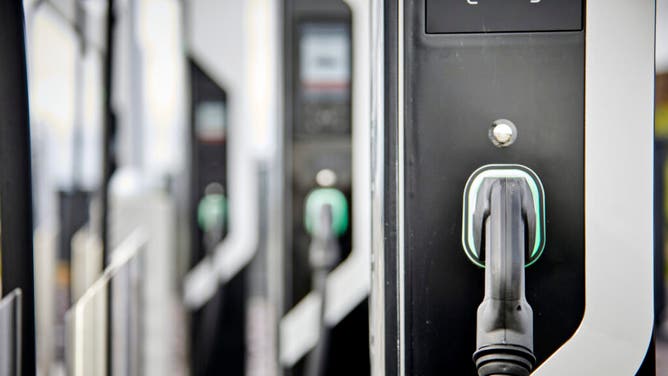Ford Pulls Plug On $12 Billion Electric Car Investment, Takes Massive Losses On EV’s After Biden Praise
The Biden Administration, state of California and most of Europe have made it a priority to push electric cars on consumers going forward.
And consumers are overwhelmingly rejecting them.
Ford, one of the world's largest auto manufacturers, announced on Friday that it was pressing pause on its $12 billion investment into electric cars. Because the company, like most of the rest of the auto industry, has seen demand for electric cars wane rapidly in recent months.
Even that buries the lede of just how bad the forced electric vehicle (EV) investment has been for automakers.
Ford also said that its electric car division lost $1.3 billion this quarter alone. Which means that for every EV the company sold, it lost $36,000. Revenues are so catastrophically bad for electric cars that Ford expects to lose roughly $4.5 billion on its EV unit.
According to the company, the loss is "attributable to continued investment in next-generation EVs and challenging market dynamics." Additionally, "many North American customers interested in buying EVs are unwilling to pay premiums for them over gas or hybrid vehicles," Ford said.
So people aren't willing to pay more for cars they don't actually want, based on hyperbolic scenarios of climate change, when the cars aren't even necessarily better for the environment than gas cars anyway.
READ: ELECTRIC CARS MAY BE WORSE FOR ENVIRONMENT THAN GAS CARS, ACCORDING TO NEW REPORT
Who would have ever guessed?

Electric car charging bank. (Getty Images, John Callicom)
Electric Cars Are This Unpopular Even With Biden Administration Financial Support
What might be most impressive about Ford's remarkable EV losses is that the Biden administration keeps giving out money to support the company. Just this year, in June, Ford was given $9.2 billion to construct battery factories.
All to build more of the same cars that Ford can't sell without steep discounts.
Ford announced its slashing production of its Mustang Mach-E SUV after declining demand. Demand that continues to erode even with the federal government and some states issuing massive tax credits to subsidize the inflated cost of EV's.
And it's still not enough.
Surveys have shown that a substantial portion of electric car owners intend to return to gas in the near future, an unsurprising result considering the hassles of ownership. The public charging infrastructure is abysmal; outside of Tesla, fast chargers are few and far between. Often they either don't work at all or charge at reduced speeds. If you can find an open plug at all.
Waiting for a charger to open, spending 30 minutes to an hour killing time without the car actually fully charging...none of that is desirable for most buyers. Not to mention spending money to install a home charger, especially with skyrocketing utility costs thanks in part to costly and mostly ineffective "green" energy initiatives.
On top of the lack of resale value in electric cars, given that battery life degrades rapidly over time, meaning that the already abysmal range figures quoted can be cut by 30 percent to 50 percent in just a few years. Or that they don't work as well in extreme heat or cold.
Other than that, what's not to like?
Politicians though, likely won't care enough to change course, because virtue signaling about climate change is more important than making financially responsible choices. Ford better get used to losing a whole bunch of money.